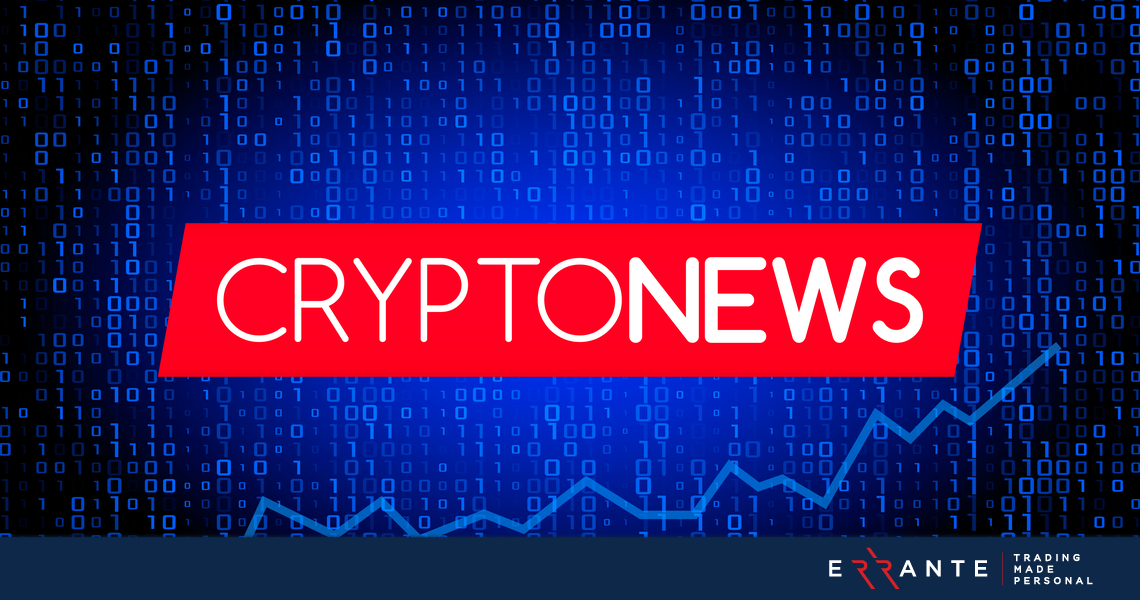Discovering the Effect of Regulative Changes and Technical Technologies on Today's Digital Currencies Headings
The intersection of governing changes and technical advancements is basically modifying the landscape of digital currencies, triggering a re-evaluation of their role in the international economy. Regulatory bodies, such as the SEC and CFTC, are actively influencing just how electronic assets are identified, while new innovations are enhancing transaction effectiveness and safety actions.
Current Regulatory Landscape
Following rapid developments in digital currencies, the present governing landscape is progressing to attend to the intricacies and difficulties presented by these advancements. Federal governments and regulative bodies around the world are coming to grips with exactly how to successfully manage this expanding market, which usually goes beyond nationwide boundaries.
Secret regulative techniques include the establishment of structures that define electronic currencies, guaranteeing consumer security and protecting against immoral tasks such as money laundering and fraud. In the USA, agencies like the Stocks and Exchange Payment (SEC) and the Product Futures Trading Compensation (CFTC) are actively taking part in conversations to clear up the classification of numerous electronic assets and their regulative implications.
In A Similar Way, the European Union is progressing its Markets in copyright-Assets (MiCA) policy, which aims to develop a cohesive regulatory setting across participant states. Countries like China have actually selected stricter procedures, consisting of outright restrictions on certain copyright tasks.
As this regulatory landscape proceeds to establish, it will be critical for stakeholders, consisting of services and consumers, to remain informed and adapt to the altering atmosphere to reduce threats while taking advantage of chances within the digital currency round.
Secret Technological Innovations
Countless technological innovations are improving the landscape of electronic currencies, dramatically boosting their capability and security. One of one of the most essential improvements is the development of blockchain modern technology, which provides a decentralized ledger that makes certain transparency and immutability of deals. copyright news. This technology not only alleviates the threat of fraud however additionally enables for real-time deal confirmation, fostering individual trust
Furthermore, the introduction of clever contracts has reinvented just how agreements are performed within electronic money ecosystems. These self-executing contracts promote computerized transactions, eliminating middlemans and decreasing expenses linked with typical contract enforcement. Additionally, improvements in cryptographic strategies boost the security of digital purses, securing individuals' possessions from potential cyber dangers.
Another noteworthy innovation is the integration of expert system in purchase tracking and fraud detection, making it possible for systems to recognize questionable activities quickly. Moreover, the intro of Layer 2 scaling remedies, such as the Lightning Network, addresses scalability concerns, permitting faster and less expensive transactions on networks like Bitcoin.

Influence on Market Characteristics
Technical developments in electronic money have not just boosted capability and safety however have also considerably altered market characteristics. The introduction of blockchain innovation has actually raised transparency and lowered purchase prices, leading to greater efficiency in trading and financial investment. This has actually urged an extra varied series of participants, from retail capitalists to institutional gamers, to involve with digital currencies, thus enhancing market liquidity.
In addition, the appearance of decentralized money (DeFi) systems has actually interfered with traditional financial systems, giving customers with different methods for financing, borrowing, and trading. This change has actually promoted a competitive atmosphere where standard monetary organizations are obliged to innovate or take the chance of obsolescence (copyright news). With the increase of stablecoins, which provide price security in the middle of volatility, traders can now perform transactions with lowered danger, further affecting market behavior
In addition, the combination of expert system and artificial intelligence in trading techniques allows for extra advanced market evaluation and predictive modeling. Therefore, financiers are better outfitted to respond to market variations, producing an extra dynamic trading atmosphere. Jointly, these developments are improving the landscape of digital money, leading to an extra interconnected, competitive, and reliable market.

International Perspectives on Guideline
Regulative methods to electronic money differ significantly around the world, typically mirroring varying financial top priorities, social mindsets toward innovation, and levels of technological fostering. In the USA, regulatory bodies such as the SEC i was reading this and CFTC come to grips with defining the legal status of cryptocurrencies, focusing on investor defense and market honesty. Meanwhile, the European Union is progressing thorough governing structures like the marketplaces in copyright-Assets (MiCA) proposition, intending to produce a unified method that fosters advancement while ensuring consumer safety.
On the other hand, nations like China have taken on a straight-out restriction on cryptocurrencies, focusing on monetary control and economic stability over innovation. On the other hand, nations such as El Salvador have actually accepted Bitcoin as lawful tender, showcasing a vibrant dedication to monetary inclusion and financial modernization.
Developing nations usually locate themselves navigating an intricate landscape, stabilizing the need for law with the potential advantages of digital money in driving economic development. In general, the international regulative setting stays fragmented, with recurring dialogues and changes as governments look for to strike a balance between cultivating development and mitigating threats related to electronic currencies. This dynamic landscape emphasizes the need for recurring global teamwork and discussion among regulatory authorities.
Future Fads in Digital Currencies
As regulatory structures progress, the landscape of digital currencies is positioned for significant transformation. Arising trends indicate a convergence of regulative quality and technological innovation, which will shape the future of digital money. Central Financial Institution Digital Currencies (CBDCs) are expected to get grip as governments explore their prospective to improve financial plan effectiveness and financial addition.
Simultaneously, decentralized financing (DeFi) platforms are expected to challenge conventional banking systems, using cutting-edge economic services that run without middlemans. This change can bring about a re-evaluation of existing regulations to accommodate the distinct qualities of DeFi while making sure customer protection and systemic security.
Moreover, the combination of expert system and artificial intelligence in copyright trading and threat analysis will certainly redefine financial investment methods and market characteristics. As electronic currencies end up being increasingly mainstream, concerns such as cybersecurity hazards and governing conformity will certainly require robust services.
Last view publisher site but not least, public perception and fostering will play a vital role in figuring out the trajectory of digital money. Increased recognition and education relating to the benefits and threats connected with electronic money will certainly drive approval, ultimately affecting the governing landscape and market advancements in the years ahead.
Conclusion
